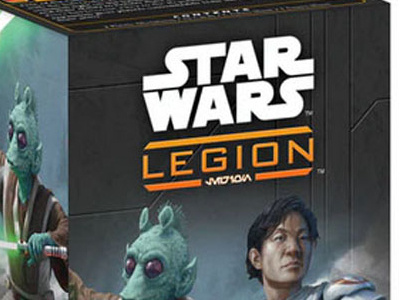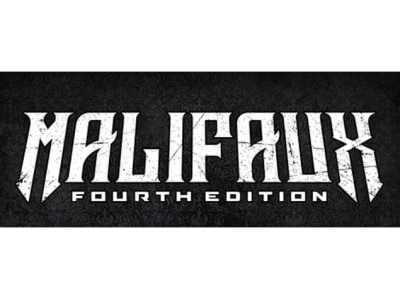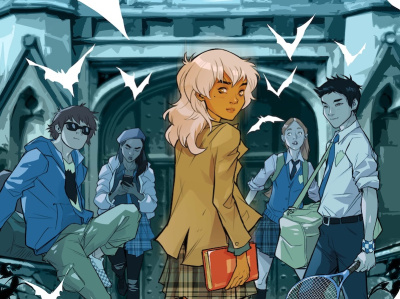 ICv2 interviewed Marvel President and Publisher of the Print, Animation, and Digital division of Marvel Worldwide Dan Buckley, in a wide-ranging discussion that we published in three parts. In this third part, we talk about Marvel’s use of variants, the renumbering of Marvel NOW! and All New Marvel NOW!, returns, New York, and 2014. In Part 1, we talked about the overall market and the channels for Marvels, reaching kids, and digital. In Part 2, we talked about Marvel’s strategies for coordinating print comics with the movies, how that affects creator relations, and a broader look at creator relations in general.
ICv2 interviewed Marvel President and Publisher of the Print, Animation, and Digital division of Marvel Worldwide Dan Buckley, in a wide-ranging discussion that we published in three parts. In this third part, we talk about Marvel’s use of variants, the renumbering of Marvel NOW! and All New Marvel NOW!, returns, New York, and 2014. In Part 1, we talked about the overall market and the channels for Marvels, reaching kids, and digital. In Part 2, we talked about Marvel’s strategies for coordinating print comics with the movies, how that affects creator relations, and a broader look at creator relations in general. Variants are being used at a fairly high level by a lot of publishers, including Marvel. Can you talk about where you are in the use of variants vs. previous periods and where you think we are in terms of a possible danger point for excess?
I’ll give you my broad scope view.
Variants are definitely being used to drive unit sales on key books, specifically the start of story books and issue #1 books. That’s what we focus on.
The real danger point for me is when you start overprinting variants and not making them to order. One of the things people go back to (I can remember, and I was very involved with it) were the enhanced cover treatments. We can all agree the exercise and usage of that to create up-price product in large amounts was not a good thing for everybody, because cash flow got more jammed up when everything went south.
I don’t get as concerned about it when we’re using it against launch books and we’re being very judicious about what the volumes are for those books, because of the rarity.
It’s not just perceived scarcity, it is scarcity.
It does deal with a part of our market that is part of our market. There are people who are collectors and they like that activity. I think it’s a much larger part of the market than any of us ever truly wanted to admit. I think it probably represents probably 10 to 20% of our core fan base.
Of dollars?
I think of dollars. And it’s not scientific, but I think it could be as high as 10% of our consumers. I don’t think they participate in every variant program either. I think there are some people who got into the [Skottie] Young variants so they collected all of the Young variants. I think there are people who collected all of the J. Scott Campbell variants. I think there’s an odd, eclectic mix of people out there doing various different things.
One of the biggest challenges that we always find, and I think all the publishers find, is that we want to get as many books out there in the market in the first place vs. going back for second and third prints, because we feel we have a better shot at keeping consumers, and the subsequent issues (like 2, 3, 4, 5, 6) will be at volumes that are healthier for the book. Retailers tend to do order patterns off of that first issue. [We use variants to] get that first number pushed high, where we think it gets the best shot for this long tail of the book. That’s kind of how we look at it and that’s how we leverage it.
I’m not going to deny that at times we probably abuse it. We have those internal debates here fairly often. But that’s the balancing act of the whole thing.
We hear some complaints from retailers about the levels required to get the incentive variants.
That’s something that should be constantly communicated to [SVP-Sales] David [Gabriel]. One of the reasons that variants are better than enhanced covers is because what you’re trying to do is say, "all right, you buy five more books, I’ll give you this one that will cover the cost of those five books." It’s not like enhanced covers where you can’t move them because there’s nothing special or unique about them, and they’re at a higher price point. It’s an implicit agreement between the publisher and retailer that you’re trying to find a way to hedge each other’s risk. We want people to make money off those covers. That’s why they’re there. We don’t want to have variants that aren’t worth anything because then it’s not achieving the goal of what you’re trying to do for the retailer.
Looking at All-New Marvel NOW!, which follows Marvel NOW!, can you talk about how those initiatives work in terms of the overall publishing plan? Is this a way to engage new readers by giving them a jumping on point? And is it something you’ll be doing repeatedly?
Do you mean using the term "Marvel NOW?"
Not that term, necessarily, but this idea of using new numbers, new creative teams, new arcs, and saying "we’re starting over on this book, you can jump on now."
As long as is it successful, we will continue to do it. I know that sounds like a stock answer, but I don’t think anyone would argue the success that we have with Marvel NOW!, with some titles popping. Also fans are meeting some new creators and go "wow, I didn’t know who the hell that guy was," from writers to artists. And it’s also a responsibility of Marvel and DC, for the hobby industry, to create excitement within that industry and create foot traffic. We need to get them into the stores, then it’s up to the retailers to keep them coming, for the experience, so they’ll want to go there all the time.
So if it’s not Marvel NOW!, we’ll have new #1s and new creators working on something else a year, year and a half from now. It’s challenging our editorial staff on a regular basis to recharge and re-excite some of our characters and franchises and to find new talent to do that for us and bring new voices to the industry. Yeah, we’ll continue to do that until the cows come home. And if #2s start outselling #1s, we’ll start shipping a lot more #2s. (Laughs.)
If they stop buying it, you’ll stop doing it.
It’s kind of a balancing act. Yeah, we’re going to have an event, like an Avengers vs. X-Men event, an editorial-driven event where a creator may have a voice for an event, but it’s a limelight event, which means there’s a lot of voice and coordination, where there may be one or two creators really driving it and everyone else is kind of going along. Infinity and Avengers vs. X-Men are editorial-driven events that have a creative spine that everyone else is drafting.
We look at Marvel NOW! as editorial creating and packaging a bunch of mini creative events under one umbrella. So it’s less about, "I’ve got to find out what happens with the Avengers vs. X-Men fight to find out what happens in this other issue." We’re trying to get everyone excited about the concept as a whole so you can elevate a bunch of books that may not have gotten elevated under "I’m going to market this #1. I’m going to market this #1. I’m going to market this #1."
So there’s a lot of editorial coordination but the Marvel NOW! events are much more creator-driven and story-driven. I’m not saying we’re not writing good stories for our events, but I think you understand the differences between the two. We’re trying to find a way that we’re not doing 1, 2, 3, 4 editorial events, and then finding a way to pocket a couple #1s. We want to make sure we’re finding a balance of letting our creators breathe and tell the stories they want to tell, and also getting stuff out there that will create tentpole box office events. That’s what we’re trying to do.
Maybe the biggest change in the geography of comic publishing in the last 70 years is your distinguished competition will no longer be in the same city. What’s your opinion of the change in the geography of the business?
From a guy who has been reading comic books since he was a little punk in New York, I still consider New York the heartbeat of comic and graphic fiction even though we’re the lone wolf now out here in New York. It was a little disheartening but everyone’s got to make business decisions that they think is the best for their business. They felt that was the best move for their business operationally, creatively, fiscally--I don’t know their reasons. From an industry guy from afar, yeah, it was a little bit of a bummer, but the world will go on. We’re very happy to continue to have our 212 area code and we’re very pleased to carry on the torch here where it all started and we plan on being here for a very long time.
Any other issues you want to raise?
I’m concerned about the increasing use of returns. To bring new foot traffic into stores, having a broader range of products is a fantastic thing. We’ve got a very good, healthy business. It’s usually growing. It’s a grind to keep it to where you want to keep it, but it’s been fairly steady for the last several years. I think that’s [the increasing use of returns] the only variable that I look at in the industry from a macro standpoint that could create an unforeseen problem. People being judicious on the usage of that tactic is something that does concern me.
Are you looking for a good 2014?
Yes. We’ve got a strong film slate that will help support the industry as a macro event. That buzz awareness piece is very helpful. We got a good start with Thor; I know that was the tail end of '13, but that gives us some wind behind us going into ’14. Cap looks very, very strong. I think it will perform incredibly well. There are other comics-based movies out there from our licensing partners and competition; and then Guardians we’re very excited about.
There are plenty of other things going on in other parts of the business to help keep awareness out there and the publishing plan looks very strong. I’m excited. Probably my favorite part of the job is creative retreats. I sit in a room with a bunch of comic book creators and editors trying to figure out what we want to do in the next two years. That’s like a kid in the candy store kind of thing. You’ve got to laugh if that’s your job.
Go back to Part 1.







